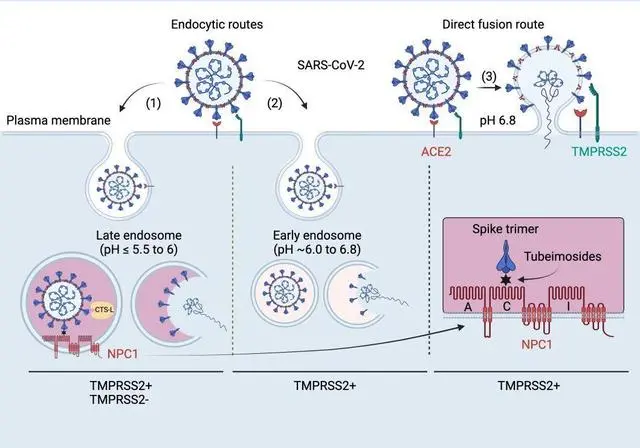The dried tubers of the gourd plant Fritillaria thunbergii are a traditional Chinese medicinal herb in China. According to the Dictionary of Traditional Chinese Medicine Names, it can be used to treat scrofula, breast abscess, snake and insect bites, and sores.
Recently, the researchers of Harbin Veterinary Research Institute of the Chinese Academy of Agricultural Sciences announced a new discovery about Fritillaria thunbergii, the extract of which has the potential to develop drugs against COVID-19 and Ebola virus. The related research was published online on January 2, 2024 in the journal Nature Communications.
It is reported that the rapid mutation of COVID-19 has brought great challenges to the effectiveness of vaccines, and the sudden and epidemic characteristics of Ebola have seriously hindered the accessibility of vaccine prevention, which highlights the importance of antiviral drugs. The development of "cocktail" antiviral drugs targeting different stages of virus replication cycle can significantly improve the antiviral effect and reduce the probability of drug off target caused by drug resistance mutations.
In the research released this time, scientists found that both COVID-19 and Ebola virus can use Niemann Pick C1 (NPC1) in late cell endosomes as membrane fusion receptors to complete cell invasion. Later, they screened 974 natural compounds from plants and found that Tubeimoside is an invasion inhibitor of COVID-19 and panfilovirus targeting NPC1.
Specifically, the specific targeted molecule of NPC1, Tubeimoside, can block the binding of COVID-19 and filovirus envelope glycoprotein with NPC1, prevent the occurrence of membrane fusion, thus blocking the cell invasion of viruses, effectively inhibiting the replication of COVID-19 and pan filovirus, and playing an antiviral role.
In fact, anti coronavirus and filovirus drugs have been put into use, but they mainly act in the middle and late stages of viral infection, while tubeimoside plays a blocking role in the early stage of viral infection, that is, the membrane fusion stage of virus invasion into cells, and has the potential to develop antiviral drugs targeting COVID-19 and pan filovirus replication in the early stage.
Ilyas Khan, a doctoral student from the National Key Laboratory of Animal Disease Prevention and Control at Harbin Institute of Veterinary Medicine, Chinese Academy of Agricultural Sciences, is the first author of the paper. Professor Zheng Yonghui, researcher Bu Zhigao, and associate researcher Wan Xiaopeng are co corresponding authors.

Post time: Jan-03-2024


